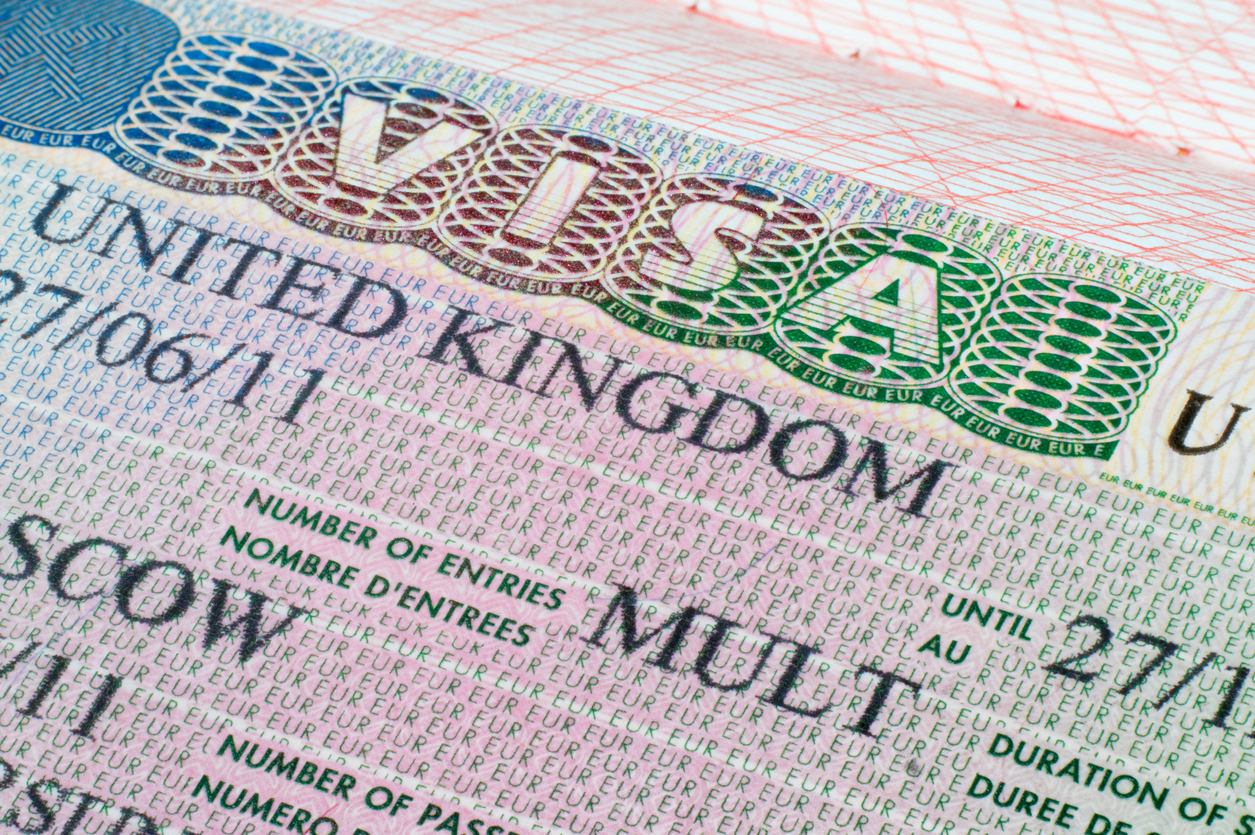DJs, and Dog Walkers, Among Roles Eligible for UK Skilled Worker Visas.
The UK’s list of roles eligible for Skilled Worker visas has expanded to include a wide range of unconventional professions. DJs, dog walkers, and homeopaths are just a few examples of the diverse roles open to overseas workers. While many of these middle-skilled jobs may not immediately appear to be vital to the UK economy, new research has shown that these positions are increasingly becoming part of the work visa system. This shift has been driven by significant changes in immigration rules since the UK’s departure from the European Union.
In a study of Home Office data covering the period until March 2024, Robert McNeil, a researcher at the University of Oxford, identified 334 visas granted for “animal care service occupations.” This category includes dog groomers, dog walkers, stable hands, kennel assistants, and veterinary nursing assistants. Additionally, 167 fitness and wellbeing instructors, such as Pilates and yoga teachers, were granted Skilled Worker visas during the same period. These roles are part of an eclectic list that also includes costume interpreters, individuals who wear period dress and greet visitors at museums and National Trust properties.
While it may seem surprising to some that such jobs are on the eligible list, McNeil explained that these roles are eligible because of significant changes made to the immigration system following the UK’s exit from the EU. “Previously, only graduate-level jobs qualified for non-EU workers, but now a much broader spectrum of positions are included,” he said. However, he pointed out that “many of these roles may require particular skills but might not be the types of jobs that immediately come to mind when we think about critical sectors needing overseas workers.”
The list of eligible jobs, which ranges from DJs to costume interpreters at heritage sites, has been described as eclectic. While these roles may require specific skill sets, McNeil noted, “they’re not typically considered essential in the same way that nursing or engineering jobs are.” This expansion of the Skilled Worker visa list has sparked a broader conversation about what constitutes a "middle-skilled" occupation and how the UK can ensure it meets the demand for talent in all areas of its economy.
The UK Skilled Worker Visa: How to Apply and What You Need to Know
For non-EU nationals seeking to work in the UK, the Skilled Worker visa provides a pathway to employment. To apply for this visa, foreign nationals must first receive a job offer from a licensed UK employer who acts as their sponsor. This sponsorship is critical as applicants cannot apply without securing a job that meets the specific visa requirements.
In addition to having a job offer, applicants must meet certain income criteria. Most applicants must earn a minimum salary of £38,700 annually, though the threshold drops to £31,000 for those under the age of 26 or those engaged in certain types of higher education. Some sectors may have further reductions to the salary thresholds if the occupation is on the UK’s shortage occupation list.
The process of applying for a Skilled Worker visa is done online. Applicants are required to submit various documents, including proof of their job offer, evidence of their qualifications, and potentially an English language proficiency test. This test ensures that applicants can communicate effectively in the workplace and contribute to the UK’s economy.
While the application process is straightforward, it can be costly. The application fee ranges from £610 to £1,408, depending on the job and the applicant’s circumstances. If the applicant’s job is in a shortage occupation or they are under 26 years old, the fee is typically lower. Additionally, applicants must pay the Immigration Health Surcharge (IHS), which costs £624 per year of the visa. This surcharge allows visa holders to access the National Health Service (NHS) during their stay in the UK.
Though the application process may seem daunting, it is an essential step for those wishing to take advantage of the employment opportunities available in the UK. Understanding the visa requirements and ensuring compliance with the necessary documentation are key to success.
Visa Success Rates and Recent Changes
The latest data on immigration trends to the UK reveals significant fluctuations in visa issuance. In the year ending September 2024, a total of 241,719 work-related visas were granted, a 28% decrease from the previous year. However, this is still a 76% increase from 2019 levels. The reduction in work-related visas can be attributed to the UK government’s efforts to reduce net migration and prioritize high-skilled workers over a broader range of applicants.
The Skilled Worker visa route remains one of the most popular, though it has seen a slight decline of 3% in 2024 compared to 2023. Other categories, such as Health and Care Worker visas, experienced a much larger decline of 65%, likely a result of the end of temporary pandemic-era concessions. Meanwhile, Temporary Worker visas increased by 7%, largely due to the growing demand in seasonal roles such as agriculture and hospitality. Notably, the Seasonal Worker visa route saw a sharp rise, with nearly double the number of applicants compared to the year ending 2019.
One of the more notable trends observed is the increase in extensions for individuals already in the UK on work-related visas. In the year ending September 2024, the number of visa extensions grew by 35%, totaling 400,302. This growth was driven by increases in the Graduate, Health and Care Worker, and Skilled Worker visa routes, indicating that many foreign workers are choosing to stay longer in the UK once they secure employment.
The UK government has expressed its intent to tighten immigration rules further, particularly targeting the technology and engineering sectors, which have seen an influx of workers in recent years. As part of this strategy, ministers are expected to publish a white paper that will set out a comprehensive plan to control immigration while balancing the country’s need for skilled workers in sectors critical to economic growth.
In particular, the government is focusing on ensuring that the UK workforce is better equipped to fill jobs in fields such as artificial intelligence (AI) and life sciences. Labour leader Keir Starmer has already made it clear that the UK’s immigration system should prioritize both controlling immigration and ensuring that the country remains open to talent in high-demand sectors.
Why Do People Come to the UK? Work, Study, and Family Visas
While work-related visas remain a major category for arrivals to the UK, other visa categories are also seeing significant changes. For example, in the year ending September 2024, 392,969 sponsored study visas were granted to international students, representing a 19% decrease compared to the previous year. Despite the decline, the number of student visas granted was 46% higher than in 2019, illustrating the continued demand for education in the UK. The majority of student visas (61%) were granted for master’s-level courses, with fewer visas granted to dependants.
Family-related visas also continued to increase, with 86,940 family visas granted in the year ending September 2024, a 7% increase compared to the previous year. This growth has been driven in part by an increase in partner visas and family reunification applications, particularly for individuals granted refugee status in recent years.
The UK has also maintained its commitment to providing safe and legal routes for refugees, with 89,250 grants of leave given via humanitarian routes in 2024. While this figure represents a 19% decrease compared to the previous year, the UK remains a destination for those seeking safety and protection.
Looking Forward: The Future of UK Immigration
As the UK’s immigration policies continue to evolve, foreign workers will remain a crucial part of the country’s economy. The government’s new white paper, expected to be released in spring 2025, will address concerns about the balance between reducing overall immigration numbers and meeting the demand for highly skilled professionals.
Despite efforts to reduce migration levels, the UK government is committed to ensuring that the country remains open to top talent, especially in high-demand fields such as AI and life sciences. By continuing to refine visa routes and eligibility criteria, the UK hopes to create a more sustainable immigration system that supports both domestic workforce development and global talent recruitment.
For those interested in applying for a Skilled Worker visa, understanding the new rules, success rates, and requirements will be key. With fluctuating numbers and shifting political landscapes, applicants should stay informed about the latest changes to UK immigration policies to increase their chances of success.






















